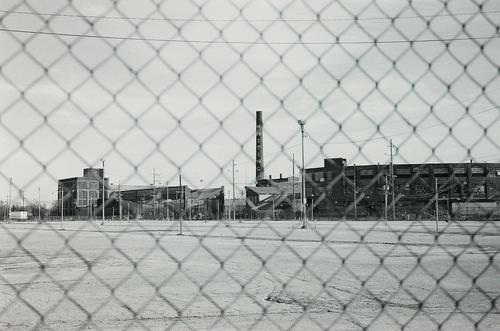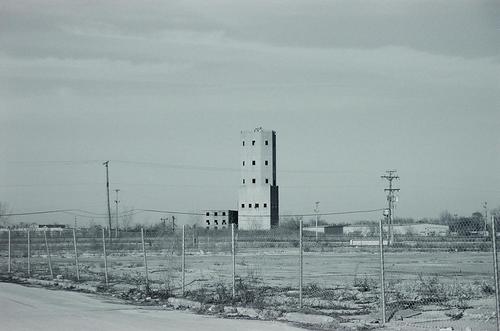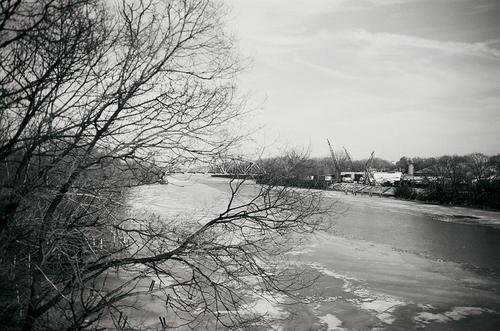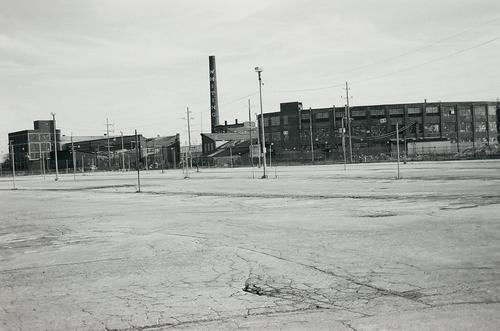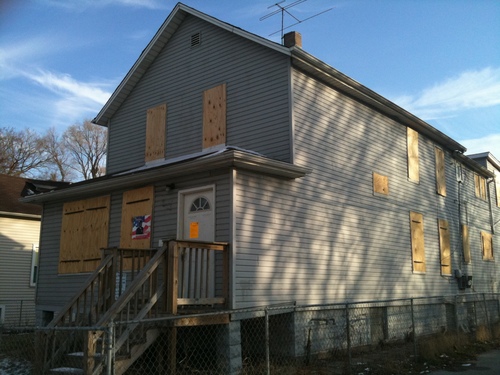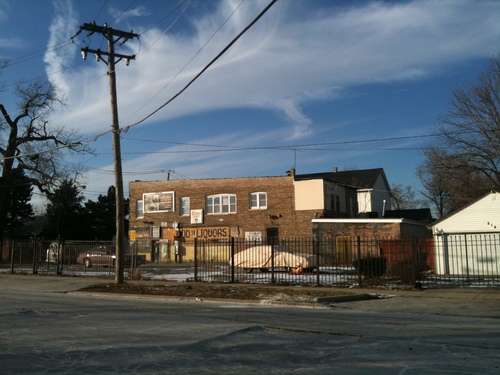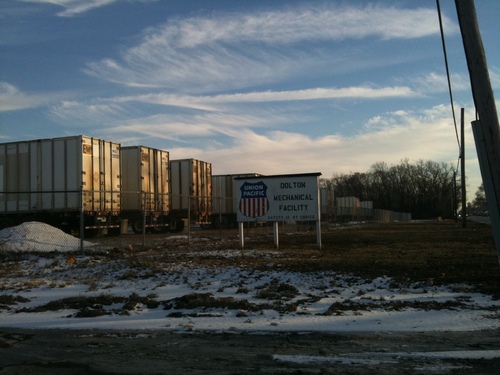| « Jackson Jr.: President Should Oppose Tax Cut Compromise | KassWatch: The Information Is Murder Edition » |
Chicago Suburbs Thu Dec 09 2010
Forgotten Images from the South Suburbs
Last winter, while doing research for a story, I drove through Riverdale and Harvey to take some photographs with my iPhone and my father's old Minolta SLR camera. A native of the south suburbs, I was always struck by the sadness of these towns as I passed through them daily on the Metra train during my commute into the city. From the train window, I would see the number of middle-class homes in bedroom suburbs dwindle as barren factories blocked anything else in sight. In winter, the view from the train window was even more striking. Potholes, ice forming over the industrial Calumet-Sag River and abandoned storefronts were ubiquitous reminders of poverty. I wanted to understand these towns more, so I walked around them one Sunday afternoon with my sister. I also wanted this visit to be the first of many to the area. As I became busier with a new job, I unfortunately had to put my research on hold and left the film undeveloped in my father's camera. Last month, I finally finished the roll of film and took it to a store to get it developed. I was taken aback for a moment when mixed in with images from a trip were photos of factories and boarded-up homes. I completely forgot I took any of these images. I now live more than 5,000 miles away from Chicago, but something about the photos drew me back home.
Harvey and Riverdale were once prosperous industrial towns, home to several factories including Acme Steel Company and the Federal Ice Refrigerating Company. As Joseph C. Bigott notes in his Encyclopedia of Chicago entry, Harvey's founders "envisioned Harvey as a model town, a blend of capitalism and Christianity." Many of the services offered in Harvey were similar to those offered in Pullman, though "Harvey encouraged home ownership by offering potential residents a variety of house plans." In the mid-1960s, the Dixie Square mall (later made famous by the car chase scene in The Blues Brothers) opened, luring shoppers from the area. Similarly, nearby Riverdale slowly transformed from a farming community to a thriving industrial town when the Illinois Central Railroad arrived in 1852. But as factories shut down and jobs disappeared in the late 1960s and 70s, both towns lost a large portion of their economic bases. These towns, and many other southern suburbs, haven't had the same identity since then. Bigott notes that in the late 1960s, racial tensions in Harvey intensified and almost "simultaneously, Harvey lost its industrial and commercial base. The closing of Dixie Square became a symbol of the city's escalating social problems. Many residents with HUD loans could not meet mortgage payments, leading to abandoned residences. Harvey's rates of crime, unemployment, and poverty were among the suburbs' highest. The city struggled to redevelop industrial properties and improve its reputation as a residential city."
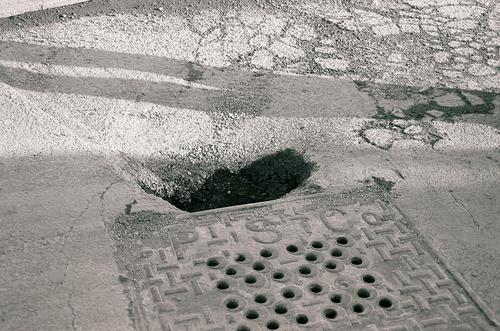
Perhaps because of this inherently American story -- how a once promising suburb can change so drastically in a matter of years, and how people are left isolated -- something about Harvey and Riverdale always pulls at my heart. When speaking to a journalism mentor about this, he mentioned that he once heard a friend refer to Harvey as "The Detroit of Chicago." That's not a far-fetched parallel, and these suburbs' problems are even more troublesome when you consider that people living just miles away in bedroom communities have completely different lives. This isn't just a Chicago problem, too. The Brookings Institution noted last year in a report (pdf) that suburban poverty rates are increasing around the country, and most notably, "Midwestern cities and suburbs experienced by far the largest poverty rate increases over the decade."
These photos reminded me that the people living in many of the south suburbs, including Harvey, Dolton and Riverdale, have been some of the hardest hit by the recession. Two winters ago, on a very rainy night, I visited a packed PADS shelter in Chicago Heights. There, I met a 44-year-old homeless man who kindly and articulately talked about his situation. He relied on landscaping jobs for income in the spring in summer, but he was looking for full-time work. He told me that prior to sleeping at PADS shelters in the south suburbs, he was living in a Harvey motel with his two brothers. But after landscaping jobs slowed down and the dead of winter arrived, they couldn't afford the $50 each per week anymore. I interviewed him as he ate a warm meal of meatloaf and mashed potatoes. He later helped clean the hallway of the shelter with a broom. Even two years later, his words still humble me:
I think we're in the same boat. Just because I don't have a key to put in a door at night for my own place doesn't give me the right to be less than somebody or more than somebody. We're all equal.






